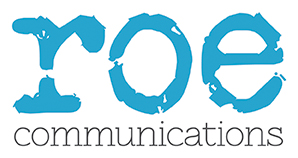Getting your business school featured in the press can seem like an uphill struggle.
You meet weekly with internal teams. Faculty send you a stream of stories. You issue regular press releases.
Still, you are struggling to get journalists to take notice.
Leaving you wondering why it’s not working. And colleagues questioning why the school hasn’t got a bigger profile.
It’s not easy building a reputation
But by saying ‘yes’ to too many things, you could be making it more difficult for yourself.
“But isn’t our job to support the business school?”
Yes, of course!
But the belief that you need to support EVERY project is counter-productive.
Imagine that you are a national business journalist. One morning you open your inbox to find a press release from a business school. It’s the fifth time that that business school has emailed you this month. Nothing in the subject line shows how this story affects your readers. Do you bother to read on? Or consign it to the junk folder?
Compare this to a different business school. They aren’t in touch as often. But when they email, their pitch is relevant to your readers and your area of interest. It’s clear immediately what the news is about. And they have a spokesperson available at short notice.
So which approach will get your business school into the press?
Signs that you could be taking on too much
If you are struggling to get your business school into the press, ask yourself:
- Are you able to say ‘no’ to non-critical press release requests?
- When you look at your PR to-do list, are you clear which actions to take first?
- Do you nearly always get a positive reaction from journalists for your press releases?
The simple truth is that if you aren’t focused, you could be undermining your long-term goals. Both professionally and personally.
“Don’t we just need to write a PR strategy?”
Yes! Having a plan with focused and measurable goals is critical.
But it’s only part of the puzzle.
Unless you can execute your strategy successfully, you won’t get your business school into the press.
5 steps to take back control of your PR
1. Prioritise activities that have the biggest return on investment
Let’s imagine that you want to get your business school into the press as an authority on sustainability.
Rather than sending out every story that you have on sustainability, chose only the strongest for maximum impact.
Instead of sending out press releases scattergun-style, cultivate relationships with the most influential journalists in that space. Use exclusives.
Consider – which of these would be more impactful? An in-depth article in the FT? Or achieve a few name-checks across disparate media titles?
2. Schedule only those activities into your schedule
Once you’ve identified those key activities, stay focused.
We know that marketing communications departments are busy. Every day, you may be dealing with requests from journalists, faculty, photographers or programme teams – to name but a few.
Of course, the nature of 24-hour media means that some enquiries will require a fast response. But unless you are dealing with a genuinely urgent situation, take a pause.
So ask yourself – will dropping everything to answer this email help our long-term strategic goals?
3. Figure out some strategies to say ‘no’
Saying no isn’t easy. Especially if it’s someone senior at the end of the email. But it’s important if you want to stick to your priorities and set boundaries.
So find softer ways of saying no. For instance, you could say that you have already committed to other things this week, but they could come back to you next week if they still need help. There’s no need to go into a detailed explanation about why you can’t help now.
You can find some more useful phrases to use HERE.
4. Remove potential distractions
It’s easy to be thrown off course when an unexpected email comes in. And of course, as many of us are working from home, it’s also to deal with that pile of washing up or pick the kids’ clothes up off the floor.
Minimise distractions with actions like carving out non-negotiable time in your calendar, turning off email and social notifications, or simply closing the door.
5. Ensure that you are not creating activities for the sake of it
Many of us fall into the trap of feeling like we need to ‘look’ busy.
And there are some quieter times in the media – such as the summer holidays.
But don’t be tempted to pad out your programme with inferior story pitches. Instead, you could use these moments to take stock, reflect and indulge in some deeper, more strategic thinking.
If you’ve decided that you want a better reputation for your business school, click HERE for more insights.

